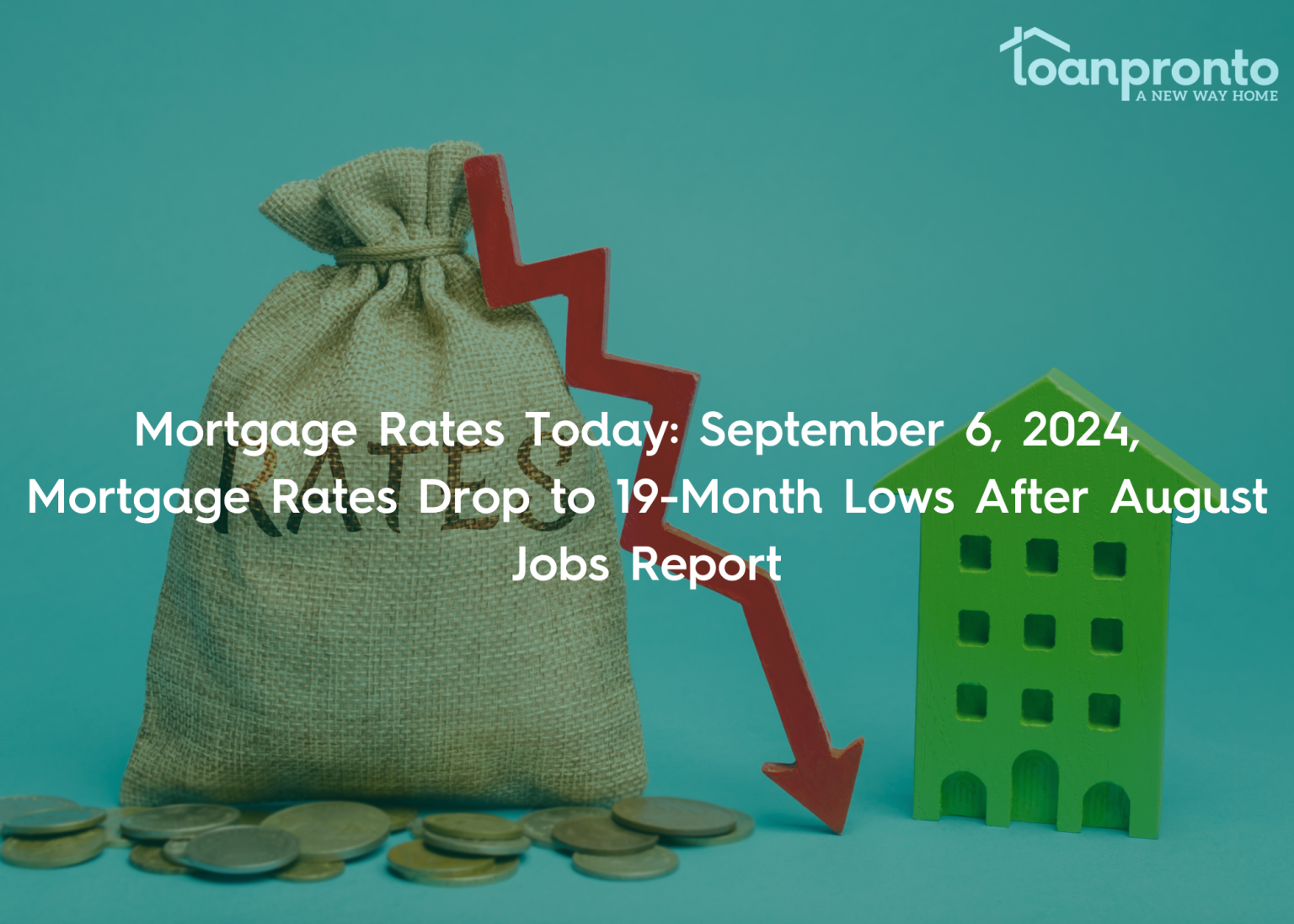This week brought good news for anyone in the housing market: mortgage interest rates dropped to their lowest levels in 19 months. The decline comes in response to the August jobs report, which showed that job growth was slower than anticipated. This report signaled to the markets that inflation might be easing, which has a direct impact on interest rates. When inflation cools, it generally leads to lower interest rates across the board, and that’s exactly what we’re seeing now. For prospective homebuyers and those looking to refinance their existing mortgages, this is a welcome development. Lower rates mean more affordable loans, lower monthly payments, and potentially significant savings over the life of the loan.
Understanding the Connection Between Jobs report Data and Mortgage Rates
The jobs report plays a critical role in shaping the direction of mortgage rates because it’s a key indicator of overall economic health. When job growth slows, as it did in August, it can signal a softer economy, reducing fears of rising inflation. This typically leads to lower interest rates since lenders don’t have to compensate for the risk of inflation eroding the value of future payments. In this case, the slowdown in job growth reassured the markets that inflation might be under control. Fewer jobs mean less upward pressure on wages and prices, which eases inflation concerns. As inflation cools, mortgage lenders are more willing to offer lower rates because the risk of future inflation eroding the value of loan repayments decreases.
What Do Lower Mortgage Rates Mean for You?
For homebuyers, the recent drop in mortgage rates is a golden opportunity. Lower rates directly translate into lower monthly payments, which can significantly increase your buying power. Whether you’re a first-time buyer or looking to upgrade, locking in a low rate now can save you thousands of dollars over the life of your loan. For those who already own a home, refinancing at these reduced rates can offer considerable financial advantages. You could secure a lower monthly payment, shorten the term of your loan, or even switch from an adjustable-rate mortgage (ARM) to a fixed-rate loan. If your current interest rate is higher than the new, lower rates, refinancing could help you save money each month and over the full term of your loan. In both scenarios, acting sooner rather than later could be a smart move. While rates are at 19-month lows now, the market can be unpredictable, and rates may not stay this low for long. By locking in a rate now, you protect yourself from potential future rate hikes.
Looking ahead
If additional data supports the notion of a cooling economy and lower inflation, we could see rates remain at these favorable levels—or even dip further. However, any signs of a stronger economy or inflationary pressures could cause rates to inch back up. For now, the outlook remains positive, and with mortgage rates sitting at 19-month lows, buyers and homeowners alike have a window of opportunity to take advantage of these reduced rates. If you’ve been considering purchasing a new home or refinancing your existing mortgage, now is an excellent time to act.
Mortgage rates can change quickly, and these 19-month lows won’t last forever. Whether you’re buying, refinancing, or just exploring your options, this is a prime opportunity to secure a great deal on a mortgage. With mortgage rates at their lowest levels in over a year and a half, buyers and homeowners have a unique opportunity to secure favorable loan terms. The drop in rates, driven by the August jobs report, offers a welcome break for those looking to lock in affordable financing. As we move forward, keeping an eye on economic reports will be essential, but for now, the outlook is bright. Take advantage of these low rates while they last!
| Product | Rate | Last Week | Change |
| 30-year fixed | 5.49% | 5.874% | ⇩ 0.384 |
| 15-year fixed | 4.624% | 4.99% | ⇩ 0.366 |
| 30-year FHA | 5.249% | 5.249% | +/- 0.0 |
| 30-year VA | 5.249% | 5.249% | +/- 0.0 |
DISCLAIMER: ALL LOANS ARE SUBJECT TO CREDIT APPROVAL. INTEREST RATES ARE SUBJECT TO CHANGE DAILY AND WITHOUT NOTICE. CURRENT INTEREST RATES SHOWN ARE INDICATIVE OF MARKET CONDITIONS AND INDIVIDUAL QUALIFICATIONS AND WILL VARY UPON YOUR LOCK-IN PERIOD, LOAN TYPE, CREDIT SCORE, LOAN TO VALUE, PURPOSE, AND LENDING SOURCE.
DISCLAIMER: FOR NEW JERSEY PURPOSES, WE ARE NOT A LENDER AND CANNOT GUARANTEE THESE INTEREST RATES.
30-year fixed-rate mortgages
Presently, the 30-year fixed-rate mortgage sits at 5.49%, reflecting a drop of 38.4 basis points from the preceding week. Despite its interest rate being higher than that of the 15-year mortgage, the 30-year option is favored by many buyers for its advantage of providing more budget-friendly monthly payments.
15-year fixed-rate mortgages
The current interest rate for a 15-year fixed-rate mortgage is 4.624%, showcasing a decrease of 36.6 basis points from the week prior. Choosing a 15-year mortgage enables borrowers to pay back their loan repayment quicker compared to the 30-year option. While this leads to increased monthly payments, it substantially diminishes the total interest paid over the loan’s duration.
Use our free mortgage and amortization calculators to calculate your monthly payment, including insurance, taxes, and interest.
No SSN required. Zero impact to credit. Your Information is never sold.
